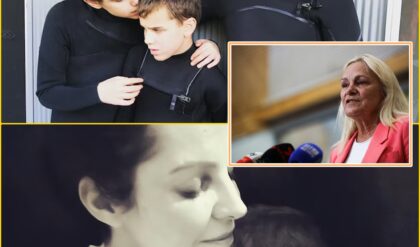Mother of James Bulger Condemns “Sick” AI TikTok Clips of Murdered Son

The mother of murdered two-year-old James Bulger has condemned “sick” artificial intelligence videos of her son that were shared on TikTok more than three decades after his death.
Denise Fergus said she was “disgusted” to discover that short animated clips had appeared on the platform, using AI technology to recreate her child speaking about his abduction and murder. James was kidnapped and killed in one of Britain’s most infamous crimes, which shocked the nation in 1993.
AI animation of a murdered toddler

The clips, which circulated on TikTok in recent weeks, used AI animation to show a digital likeness of James discussing the day he was abducted by Jon Venables and Robert Thompson, both aged 10 at the time. The boys lured him away from the Strand shopping centre in Bootle, Merseyside, on 12 February 1993.
The AI videos portrayed James describing his abduction and the horrific ordeal that followed in first-person narration. Social media users who encountered the clips reported them as disturbing, and campaigners quickly alerted TikTok moderators.
Fergus, 55, said the exploitation of her son’s memory for views and shock value was beyond cruel. Speaking to The Mirror, she said: “It is absolutely disgusting to see something like this made about James. He was a little boy who went through unimaginable suffering. For people to use his image and story like this for entertainment is sickening.”
TikTok responds
TikTok confirmed that the videos were removed from the platform after being reported and said the content had violated its community guidelines.
A spokesperson said: “We do not tolerate content that exploits or disrespects victims of crime. These clips were taken down immediately once they were brought to our attention, and we are monitoring to ensure they are not re-uploaded.”
While the removal provides some reassurance, the incident has raised wider concerns about the ease with which AI technology can be misused, particularly in cases involving victims of violent crime.
The murder that shocked Britain
James Bulger’s abduction and death remains one of the darkest moments in modern British criminal history. CCTV footage from 1993 showed the toddler being led away from the shopping centre by Venables and Thompson, who then walked him more than two miles before subjecting him to a prolonged and brutal attack.
James’s body was later found on a railway line in Walton, Liverpool. The details of the killing — involving torture with objects including bricks and an iron bar — horrified the country and led to intense public debate about the age of criminal responsibility.
Venables and Thompson became the youngest convicted murderers in modern British history. They were tried in an adult court and sentenced to life imprisonment, though they were released on licence in 2001 with new identities.
Venables’ return to prison
Since his release, Jon Venables has repeatedly returned to prison. He was jailed in 2010 and again in 2017 for possessing indecent images of children. In 2020, his bid for parole was denied, with authorities citing ongoing concerns about his risk to the public.
Robert Thompson, in contrast, has lived a low-profile life under his new identity, with no known further offences.
The notoriety of the case has never faded. For many, James Bulger remains a symbol of innocence lost, and the crime has continued to provoke emotional debate about justice, rehabilitation, and the responsibilities of the media.
Renewed trauma for the family

For Denise Fergus, every fresh reminder of her son’s murder brings renewed pain. She has spent years campaigning for victims’ rights and opposing parole applications for Venables. She has also been a vocal advocate for keeping James’s memory alive in a dignified way.
The circulation of AI-generated videos, she said, risks undoing that work. “It feels like there is no respect for James, no respect for what happened to him, and no thought about what this does to the people who loved him,” she said.
Victim support groups have echoed her concerns, warning that new technologies are being weaponised in ways that can retraumatise families.
AI, ethics, and exploitation
Experts say the incident highlights a growing ethical challenge as generative AI becomes more widespread. While the technology can be used for harmless creativity, it also makes it possible to produce lifelike but deeply inappropriate content with little effort.
Dr. Sarah Milton, a criminology and digital media researcher, said: “This is a clear example of how AI can cross moral lines. Using the likeness of a murdered child to create fictionalised narratives is not only distressing for the family but undermines public trust in technology. Platforms need stricter systems to prevent this from happening.”
Campaigners have called for new legislation to regulate AI content, including mandatory watermarks on AI-generated videos and tougher criminal penalties for those who misuse the technology to exploit victims of crime.
A plea for dignity
Denise Fergus said her plea was simple: respect James’s memory. “He was my son. He was a happy little boy. That’s how he deserves to be remembered — not through sick, artificial videos on the internet.”
Thirty years after his murder, the Bulger case still casts a long shadow. This latest controversy shows how new technology can reopen old wounds, leaving families like the Fergus family once again fighting for dignity and respect.





